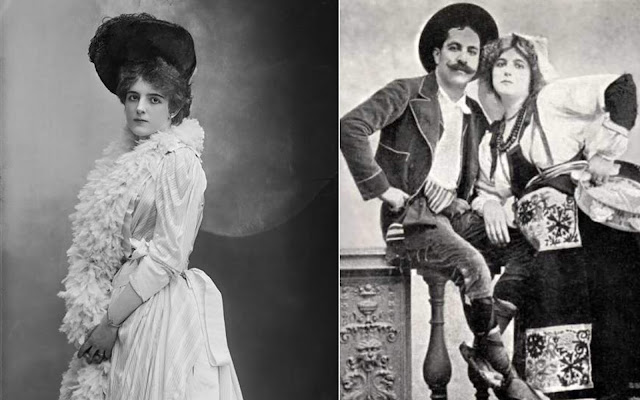 |
| Image credit: Wikimedia Commons |
She was born on June 17, 1873 into a wealthy family in Detroit, Michigan. Her father was shipbuilder and manufacturer Captain Eber Brock Ward, who was known as the “first of the iron kings” and “steamship king of the Great Lakes”. Making enormous fortune in lumbering, silver mining, and iron and steel manufacturing, he was the richest man in Michigan at the time as well as the state’s first millionaire. On the one hand, her mother, Catherine Lyon, was the niece of Senator Benjamin Wade.
Captain Ward died of brain hemorrhage before Clara turned two and the family businesses were handed over to her mother, Catherine, and were managed by her brother, Thomas R. Lyon. In 1889, Catherine toured her daughter Clara around Europe to find her a noble husband. While in Nice, France, they came across the impoverished Prince Joseph de Caraman-Chimay of Belgium, a member of the Belgian Chamber of Deputies.
Clara was only 16 when she married the Belgian nobleman, who was already 31 years old. Their marriage was celebrated in Paris on May 20, 1890. It was a common practice at the time for a poor European noble to marry an affluent heiress—title in exchange for fortune, and vice versa. The couple had two children, Marie Elisabeth Catharine Anatole de Riquet and Marie Joseph Anatole Pierre Alphonse de Riquet. Clara received a marriage settlement of $2.5 million from her father's estate. The marriage turned Clara into a princess. She was known thereafter as Princesse de Caraman-Chimay. The Americans felt utterly ecstatic!
Clara’s marriage with Prince Joseph was shaken by rumors of her alleged affair with her husband’s cousin, King Leopold II, who was besotted with the new princess. In 1896, while the Prince and Princess De Caraman-Chimay were dining in Paris, a Hungarian violinist named Rigó Jancsi, who played Gypsy music for a living, caught Clara’s attention. After a series of trysts, the two eloped in December of the same year. Joseph then filed for divorce, which was finalized on January 19, 1897.
The affair between Clara and Rigo was much-talked-about that a chef in Budapest named a traditional Hungarian cube-shaped chocolate sponge cake and chocolate cream pastry Rigó Jancsi.
Clara’s resources dwindled after her mother disinherited her following her affair with Rigo, so she thought of ways to earn money as quickly as possible. Capitalizing on her beauty and sex appeal, she worked with Moulin Rouge and Folies Bergère to simply stand still on stage wearing skin-tight, figure-forming costumes while Rigo was playing the violin. The act proved to be a hit as she earned $6,800 on a Berlin tour. She also posed for photographs, which she licensed on postcards, not to mention the “private performances” that caused a strain in her relationship with Rigo. They separated in 1900. A few years later, she met Peppino Ricciardo, a waiter of either Spanish or Italian descent, who she stumbled upon on a train. They married in June of 1904.
After her divorce with Peppino was finalized in 1911, she married her fourth and last husband, a certain Signore Cassalota, an Italian railroad station manager who toured visitors around Mount Vesuvius.
She died on December 9, 1916 in Padua, Italy. She was 43. Many thought she died a poor woman. The truth is, she left an estate worth $ 1.7 million in cash and real estate, which was divided into trust funds. Her son, Joseph, her daughter, Marie, and her last husband (with the corpus reverting to her children at his death), were the recipients of her fortune. A small bequest was also left to a cousin in Chicago.
According to the American Consul at Venice, at the time of her death, Clara “was in possession of a very large income and lived in a manner befitting its possessor. At the time of her death she occupied the best suite at the Hotel Stella d’Oro. During her sickness she had the assistance of expert physicians, and everything that money and medical science could do in her last illness was done. Her funeral was elaborate and costly.”
Clara's story is a stark reminder that no matter how filthy rich you are, you can still get lonely in a crowd of people.

.png)





0 Comments